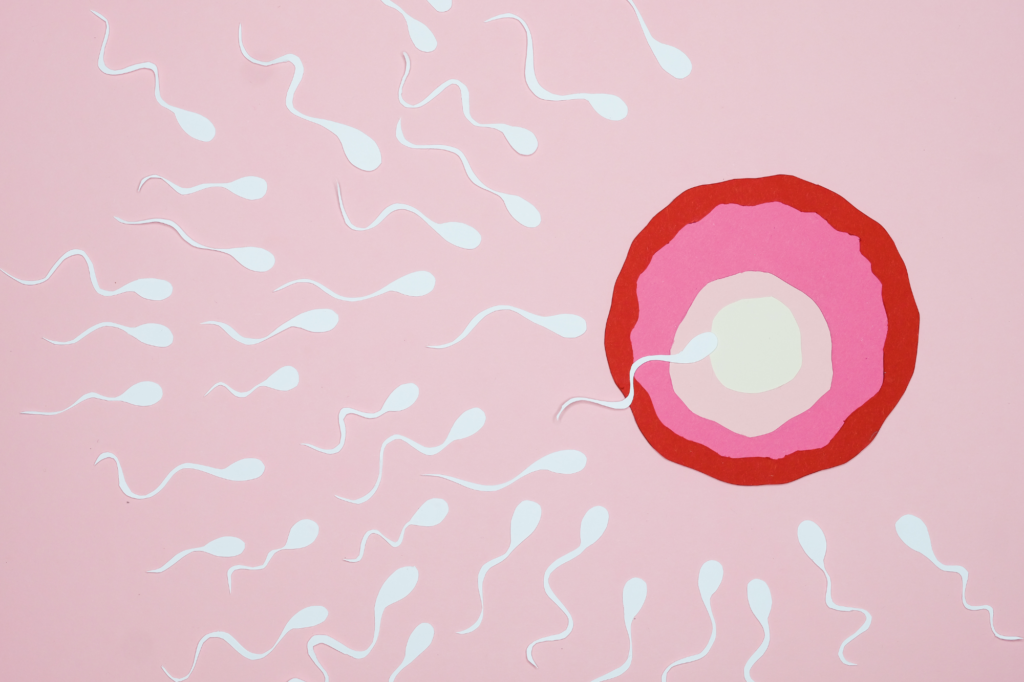If you’re wanting to start a family in the next few months you’re not alone. Fertility experts say the period between May and July is a boom time for people trying to get pregnant as sunshine boosts mood and libido.
However, with infertility rates rising and many women leaving it later to try for a baby, starting a family isn’t always easy. It may seem as if getting pregnant is easy and natural, but over 25 percent of couples in the UK have problems getting pregnant. That’s one in four!
The good news, however, is that there is a lot you can do to increase your chances either for natural conception or with IVF. Many simple lifestyle changes for both men and women (the quality as well as the quantity of your partner’s sperm matters just as much when it comes to getting pregnant) can not only improve your chances of conception but also staying pregnant.
The first step is to get your body ready and to make sure your partner’s body is ready too. Remember it takes two to make a healthy baby!
For him:
Chill out: Stress has a damaging effect on sperm count. Stress raises the level of the hormone cortisol in the body which is thought to reduce sperm reduction. Exercise is also good for easing stress and one study showed that exercising for 40 minutes a day lowered cortisol levels.
Wear boxers: Men should avoid hot baths and saunas and stick to cool showers to increase their sperm count. This is because sperm need cool conditions to thrive, which is why tight underwear and trousers are not advised as it causes too much heat to build up in the testes. Encourage him to wear boxers instead.
Quit smoking: If your partner smokes this increases his risk of fertility problems. The toxins from cigarette smoke can make sperm sluggish and increase the number of abnormal sperm. The damaging effect of smoking increases with the number of cigarettes smoked every day. Although some men are able to simply quit many others find it extremely hard, so encourage your partner to visit his doctor for support and to discuss the best way for him to stop.
Laptops: There is evidence to suggest that using computers on their laps may increase their risk of fertility problems. Encourage your partner to use a use a desk instead of their knees when using a laptop.
Slow down with the beer: Study after study has shown that alcohol consumption can increase abnormal sperm count and produce a lower proportion of healthy sperm. This is because alcohol inhibits the body’s absorption of fertility-boosting nutrients like zinc. If you are struggling to conceive encourage your partner to slow down on his alcohol consumption.
Eat healthily: It goes without saying that a fertility-boosting diet for men is a diet that is rich in natural, fresh foods, such as fruits, vegetables, grains, legumes, nuts, seeds and oily fish and low in processed foods, such as ready meals, sugary snacks, cakes, pastries and crisps.
Take a fertility supplement: It is important for the man to take a good multivitamin and mineral designed for male fertility that contains important nutrients such as zinc, selenium, carnitine, arginine etc as these are known to help fertility for men.
For you:
As soon as you start trying for a baby be sure to take a good multivitamin and mineral supplement that has been designed for female fertility contain folic acid in the active methylfolate form to reduce the risk of your baby having spina bifida. With the exception of wearing boxer shorts, all the fertility boosting tips above also apply to you because smoking, stress, alcohol and poor diet can all damage your fertility. But you can further boost your chances by focusing on the following:
Avoid coffee: Caffeine can have a damaging effect on your fertility, so it makes sense to cut it out altogether when you’re trying for a baby. Drinking more than 300mg a day (two to three cups) has been linked to an increased risk of miscarriage and stillbirth.
Do a protein check: Protein helps to keep your blood sugar levels stable and gives your body the even supply of nutrients it needs to support a healthy reproductive system. Good sources include oily fish, soya, nuts, seeds, legumes, eggs, pulses and beans.
Watch your weight: Being overweight can damage your chances of getting pregnant, so if you need to lose some weight before trying for a baby focus on exercising more and eating a healthy diet. And if your partner is overweight encourage him to lose weight too, as studies show that men who are overweight are more likely to have fertility problems than men who are not overweight. Avoid extreme diets – they can play havoc with your hormones and alter your monthly cycle. Being underweight can harm your chances of conceiving just as much as being overweight, so you need to make sure you are eating enough.
Cut down on the wine: One study of women above the age of 30 found that those who drank seven or more alcoholic drinks a week were twice as likely not to conceive, so it’s really worth cutting out alcohol altogether while you try for a baby.
For both of you:
Have more sex: It may sound obvious but the chance of conception per cycle increase from about 15 per cent for couples having sex once a week to about 50 per cent for couples having sex three to four times a week. Also, sperm quality deteriorates if it is retained for more than three days so frequent ejaculation through the cycle ensures the sperm is fresh and healthy at key fertile times in your cycle (see below). But it’s better to have sex every other night, rather than every night, to help build up good quality sperm.
Window of opportunity: Your egg only survives for 24 hours and sperm live for only four to five days in your vagina, so your window of conception for fertility each month is fairly short. This optimum time is usually between day 10 and day 17 if you have a regular 28 day period cycle. If your periods are irregular you may notice that your temperature is slightly higher when you are fertile and that you produce more vaginal fluid – resembling clear egg white – at this time.
What if nothing happens? If you haven’t conceived after two years of regular unprotected sex and are under the age of 35, and after one year if you are over 35, it’s time for you and your partner to think about having fertility testing. A semen analysis will be check for low sperm count, motile sperm and number of abnormal sperm and also sperm DNA fragmentation which can either conception or increase the risk of a miscarriage, while a blood test can check a woman’s hormone levels to see if she is ovulating.
Conditions such as PCOS (polycystic ovary syndrome) and endometriosis can affect a woman’s fertility. Up to 30% of couples have unexplained infertility and this is when the nutritional and lifestyle recommendations really come into their own, and you can contact the clinic on 01892 515905 and we can organise tests for you.
If you would like to explore whether a consultation with an expert nutritionist at the Glenville Nutrition Clinic could help you, please contact us on 01892 515 905 or send us an email at reception@glenvillenutrition.com

